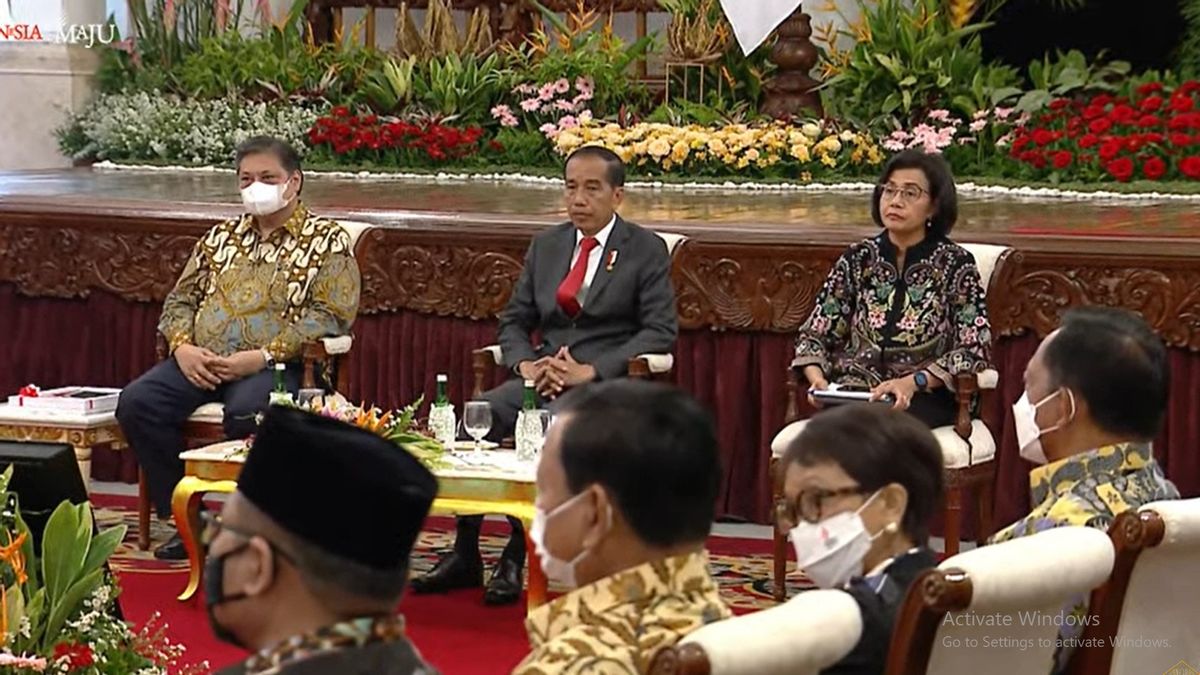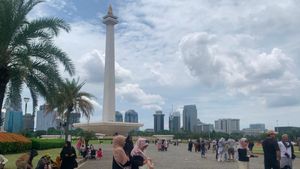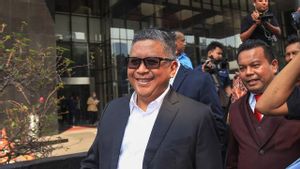JAKARTA Minister of Finance (Menkeu) Sri Mulyani today accompanied Indonesian President Joko Widodo (Jokowi) to submit the Budget Implementation List (DIPA) and the Regional Transfer Allocation List (TKD) for Fiscal Year 2023. The event which took place at the State Palace, Jakarta was a symbol of the start of the 2023 State Budget implementation.
In a statement, the Minister of Finance said that next year's fiscal instrument is designed to maintain optimism for economic recovery.
"But at the same time increasing vigilance in responding to the ongoing global turmoil," he said in a written statement, Thursday, December 1.
According to the Minister of Finance, the Ministry of Finance as an extension of the government is targeted to collect revenue of IDR 2,463 trillion. He said, this figure tends to be moderate and reflects caution in anticipating uncertainty in commodity prices, weakening the global economy and its impact on the Indonesian economy.
"We are optimistic that this target can be achieved supported by the implementation of tax reform and the implementation of the Law on Harmonization of Tax Regulations, to strengthen tax foundations that are fairer and more effective in supporting healthy and sustainable development funding," he said.
In terms of state spending, the 2023 period is allocated a budget of IDR 3,061.2 trillion, consisting of central government spending of IDR 2,246.5 trillion and transfers to the regions of IDR 814.7 trillion.
The Minister of Finance explained that state spending is directed to support economic recovery and improve people's welfare, namely first, through spending on education and health to build superior and productive human resources.
Second, the completion of national strategic projects including the new capital city of the archipelago and strengthening industrial downstreaming, and developing a green economy to support sustainable economic growth.
Furthermore, maintaining and strengthening social safety nets, especially for the poor and vulnerable, reducing extreme poverty and reducing inequality.
Fourth, to improve the performance of local governments in improving services to the community and advancing the economy in the regions.
"Finally, to support bureaucratic reform, simplify regulations, and support the preparations for the 2024 election," he said.
The Minister of Finance added that the quality of state spending at both the central and regional levels still needs to be improved.
Good spending requires careful planning, detail and understanding of field conditions. Efficient and appropriate budget implementation must be based on benefits, good governance, without corruption and avoiding the rest of the excessive budget due to execution inability. Good state spending is very important for achieving development targets, namely improving people's prosperity fairly and evenly," he stressed.
Furthermore, the state treasurer revealed that the synergy of spending and synchronization of central and regional spending continues to be improved by the construction of an integrated budgeting system, to accelerate and equalize the steps of all stakeholders. This is considered to support national development targets, as well as to avoid overlapping and duplication programs.
Through the revenue target and expenditure allocation, the 2023 State Budget is designed with a deficit of IDR 598.2 trillion or equivalent to 2.84 percent of gross domestic product (GDP).
"We hope that the 2023 State Budget can be carried out at the beginning of the year so that the community and the economy can benefit directly and maximally," closed the Minister of Finance Sri Mulyani.
The English, Chinese, Japanese, Arabic, and French versions are automatically generated by the AI. So there may still be inaccuracies in translating, please always see Indonesian as our main language. (system supported by DigitalSiber.id)













